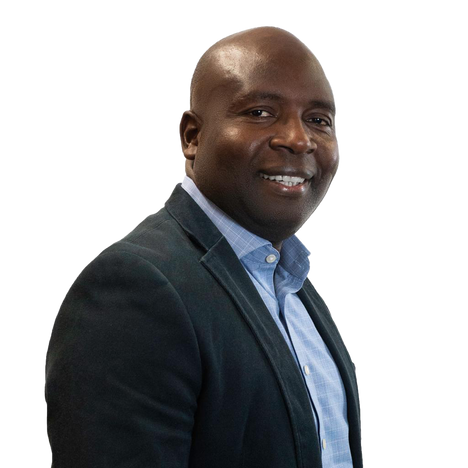You have no items in your shopping basket.
Dr Richard Dune
06-06-2025
Why global health must move beyond donation-driven models
Image by JosieElias via Envato Elements
Global health equity requires more than funding, it needs political will, community voice, and collaborative models that value local expertise
Over the last year, healthcare professionals across the global diaspora, particularly Zimbabweans in the UK, have increasingly taken on vital roles across the NHS, academia, regulatory bodies, and innovation hubs. Across these interactions, one message has become clear: the way collaboration occurs across borders in healthcare must undergo a fundamental change.
For decades, the dominant model has been one driven by aid. Wealthier nations fund initiatives in low- and middle-income countries (LMICs), often with good intentions. But in practice, this approach has created dependency, sidelined local voices, and delivered short-term wins at the expense of sustainable, long-term progress.
In this blog, Dr Richard Dune delves into his experiences from international development projects between 2014 and 2018. These challenges were observed up close. Whether it was funding tied to narrow donor agendas or programmes built without community consultation, the need for a shift became evident, from extractive models to equitable partnerships.
A new era - From donor dependency to mutual growth
Today, there is growing recognition that international health collaboration must go beyond charity and adopt a strategic approach. Organisations like Global Health Partnerships (formerly THET), led by Ben Simms, are setting a new standard by focusing on equity, skills exchange, and system leadership.
Their projects with NHS Trusts, such as East London NHS Foundation Trust, and counterparts in Zimbabwe, Malawi, Ethiopia, and beyond, aren’t simply about funding. They focus on workforce development, mental health support, leadership training, and long-term resilience.
This reframing is essential. For too long, LMICs have lost their best-trained professionals to wealthier countries. This “brain drain” continues to weaken healthcare systems that already face enormous challenges. Meanwhile, systems like the NHS benefit from that very migration, without reinvesting in the countries of origin.
If we're to be honest about fairness and global health equity, we must stop reaping what we haven’t sown.
Diaspora leadership - A hidden asset in system redesign
One of the most powerful yet underutilised assets in this shift is the global diaspora.
Today, thousands of healthcare professionals from low- and middle-income countries (LMIC) backgrounds hold leadership positions across UK institutions, ranging from NHS Trusts to local government, universities, and private enterprises. This expertise can no longer be treated as incidental. It must be mobilised intentionally and integrated into system redesign efforts that serve both host and origin countries.
In my own work with Professor Julius Mugwagwa at UCL’s Department of Science, Technology, Engineering and Public Policy (STEaPP), and through colleagues like Professor Michelle Hayes on the Neotree project, I’ve seen what is possible when collaborations are built on co-creation, rather than exportation.
These models aren’t about copying Western systems; they’re about developing locally adapted, context-specific solutions that truly work on the ground.
Why “copy and paste” solutions don’t work
A recurring mistake in international development has been the assumption that what works in the UK or the US can be replicated wholesale in other regions. This mindset is not only flawed but damaging.
At LearnPac Systems, we’ve worked on digital transformation and workforce development across the UK, Africa, the US, and Asia. The lesson is clear: solutions must be tailored to fit the local culture, infrastructure, and technological environment.
Take cloud-based learning platforms, for example. They may be suitable in urban centres with strong broadband, but in rural areas with intermittent electricity, this approach can backfire. Innovation, no matter how cutting-edge, must be grounded in practical realities.
The political is personal - Geopolitics and healthcare
Too often, healthcare professionals view politics as someone else’s problem. But the truth is that health and geopolitics are deeply intertwined.
Policies shaped in Westminster, Brussels, or Washington have ripple effects that can be felt in hospitals and clinics from Harare to Kampala. When foreign aid budgets are slashed in favour of military spending, healthcare systems suffer. When visa regulations tighten, the same diaspora professionals who sustain the NHS are unable to contribute to their home countries.
Ignoring these connections doesn’t make them go away. It just reinforces the very structures that limit progress.
Principles for a new model of global health collaboration
If we are serious about creating sustainable health systems that work for everyone, especially in LMICs, we need to abandon outdated models and embrace new principles of engagement:
- Equity over dependency - Supporting systems, not replacing them
- Co-design over imposition - Working with, not for
- Transfer over extraction - Sharing knowledge, not draining talent
- Systems over silos - Building long-term resilience, not one-off projects.
This shift requires universities, NGOs, governments, and diaspora professionals to align around a shared vision: locally led systems built on mutual trust, respect, and accountability.
A call to action - From listening to leading change
This is a critical moment. The global healthcare landscape is at a crossroads, and we must choose to move forward in a different direction.
If we want true impact, we must elevate local voices, honour context, and reject top-down, one-size-fits-all interventions. We must support LMICs as innovators, not recipients. And we must invest in partnerships that prioritise long-term system change, not short-term metrics.
At The Mandatory Training Group, we believe in that vision. That’s why our solutions, such as ComplyPlus™, are designed to be flexible, interoperable, and adaptable across various contexts, supporting compliance, governance, and digital transformation at scale.
Empowering global health with ComplyPlus™
At the heart of this new wave of international collaboration is the need for scalable, adaptable tools that can support local health systems, whether in the UK or beyond.
Our flagship solution, ComplyPlus™ Regulatory Compliance Management Software, was built with these exact challenges in mind. Developed through years of frontline experience and cross-sector consultation, ComplyPlus™ helps organisations streamline compliance, enhance digital learning, and strengthen governance frameworks.
Whether you’re a local provider in Zimbabwe or a Trust in the NHS, ComplyPlus™ empowers you to embed quality, safety, and accountability into your operations, without the need for one-size-fits-all systems.
Let’s shift from aid to alliance. Let’s build systems that work together.
About the author
Dr Richard Dune
With over 25 years of experience, Dr Richard Dune has a rich background in the NHS, the private sector, academia, and research settings. His forte lies in clinical R&D, advancing healthcare tech, workforce development, and governance. His leadership ensures that regulatory compliance and innovation align seamlessly.

Related blog articles
View allContact us
Complete the form below to start your ComplyPlusTM trial and transform your regulatory compliance solutions.







